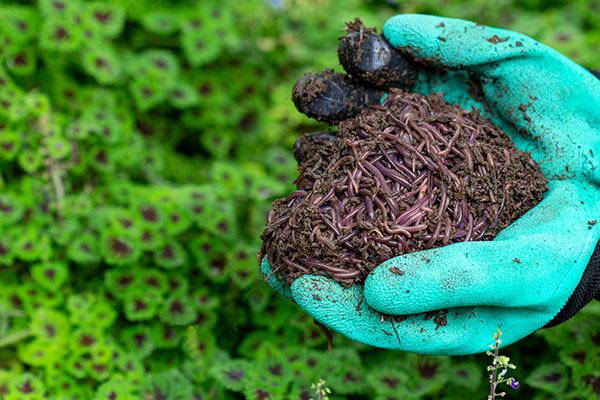
When you integrate livestock into your homestead, you're turning your backyard into a more “natural ecosystem” where flora and fauna interact. John Hayden, the owner of an integrated farm called “The Farm Between” in Jeffersonville, Vt., grows crops and raises livestock. Hayden manages his livestock to minimize the labor and fertilizer required for his plant crops. He calls this technique of using multipurpose animals “stacking functions.” (Related: Things To Look Out For When Starting A Homestead.)
Meanwhile, Matt Elston and Kirk Fackrell manage Cascade Meadows Farm, a diversified farm located in Sandy, Ore. Elston explains, “What we’re trying to do here is bring together a new understanding of old techniques, to have our farm work holistically with as few outside inputs as possible, and get as much as we can out of each individual on the farm.”
- Sheep as shrub shearers – Sheep can be used to keep vegetation in check. “Mob” sheep in overgrown areas that you want to clear. Mob grazing means to confine a group of animals in a small space to make them feed on vegetation that they don't usually eat. Sheep eat both grass and tender weeds, and they can be used to manage vegetation with movable electric fencing that will target livestock grazing activity to specific areas instead of just large and permanently fenced areas.
- Goats as dozers – If you want to keep tougher vegetation in control, like woody shrubs and brambles, you'll need goats. Goats can take care of noxious and woody plants like kudzu, poison ivy, and poison oak. If you also want goat milk, raise some dwarf breeds of dairy goat.
- Pigs as plows – Pigs take care of the land that goats can't clear. These animals can root around and dig up stumps as long as you leave food like shelled corn or acorns in holes made at the bases of the stumps you need to remove. Do take note that pigs aren't suited for heavy soils since they can compact it, which might mess up your soil structure. Pigs can be fenced in on a lawn so they can “rototill” the entire area or large sections of it.
- Chickens as insect eaters – You can use poultry for various tasks because they're “scratchers, foragers, and insect eaters.” Chickens can also provide you with eggs, meat, and high-nitrogen fertilizer. If you have a coop, keep it near your garden so you can feed your chickens food scraps, insects, pests, and weeds. In fall or after harvest, move the chickens into your garden and fruit orchards so they can get rid of insects and fertilize and turn the soil surface. Remember that chickens should be kept away from gardens during the growing season since they will eat your crops.
- Ducks as garden pest control – Ducks love to eat slugs and other garden pests like snails and grasshoppers. Indian Runner ducks are great foragers, and they can lay 200 or more eggs per duck yearly. Another duck breed to consider as a slug eater is the Khaki Campbell, which can produce at least 300 eggs annually.
- Geese as weeders – Geese prefer to eat grass and young weeds, and they won't disturb the roots of other plants. Use geese to weed established plants like tomatoes and strawberries. Consider the Chinese and Cotton Patch breeds of geese, which are perfect for weeding because they’re lightweight and active foragers. Geese can also act as “watchdogs” since they can announce and even attack intruders.
- Guinea fowl as tick control – Guinea fowl will eat ticks, and can also eat other garden pests like Japanese beetles, mosquitoes, and squash bugs. They can also lay an egg a day; two guinea eggs are equal one large chicken egg.
Using multipurpose livestock in your homestead can help enrich it. Hayden shares that his livestock’s contributions to his farm include other things aside from vegetation control. He concluded, “As an organic farmer, we’re trying to mimic nature and look at how ecosystems work.”
Natural ways to get rid of garden pests
If you're still having trouble with garden pests, try some of the suggestions listed below:
- Feed allies – These predators, or allies, need to be fed so they can keep garden pests in control. The best way to feed various allies is by planting different native perennial plants and flowers.
- Create a pond – If you have slugs, a pond will invite frogs that can get rid of the slugs for you.
- Keep plants healthy – If your plants are healthy, pests will be easier to fend off. Healthy plants can produce their own organic pesticides, which makes it harder for pests to eat and damage them.
You can read more articles about managing livestock and other homesteading tips at Homesteading.news.
Sources include:
Please contact us for more information.























